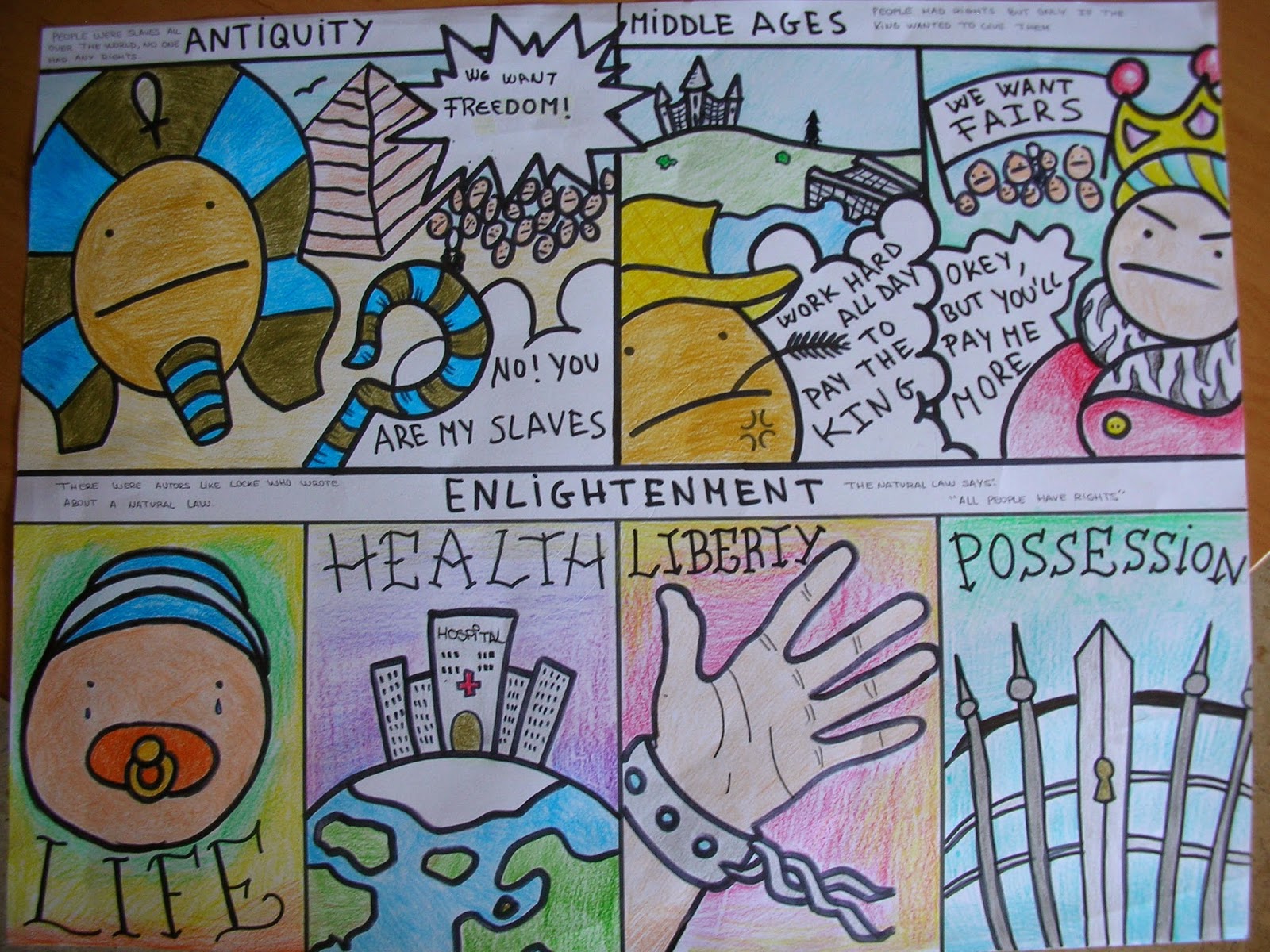
The state of nature has a law of nature to govern it, which obliges every one: and reason, which is that law, teaches all mankind, who will but consult it, that being all equal and independent, no one ought to harm another in his life, health, liberty, or possessions: for men being all the workmanship of one omnipotent, and infinitely wise maker; all the servants of one sovereign master, sent into the world by his order, and about his business; they are his property, whose workmanship they are, made to last during his, not one another's pleasure: and being furnished with like faculties, sharing all in one community of nature, there cannot be supposed any such subordination among us, that may authorize us to destroy one another.
John Locke, 1689
1. Understanding the text
In order to make a commentary of this text we selected the most important words and ideas:
Words: Law of nature, Reason, Maker
The natural rights are: life, health, liberty and possessions. We call then now Human Rights and we studied them during the 1st term.
There cannot be supposed any such subordination among us, that may authorize us to destroy one another. Thomas Hobbes thought that life and possessions belonged to the king.
Men were made by one omnipotent, and infinitely wise maker. We call this maker God.
2. Historical context
For a long time people didn´t have any rights.
Thomas Hobbes (1651) said that people had rights but only if the king agreed.
John Locke (1689) said that all people have rights and they don't have to ask the king. He had to run away from England and publish his book in the Netherlands.
The UN (1948) adopted the Universal Declaration of Human Rights. People recognise each others rights, without any reference to God.
3. Our commentary
When we wanted to write our commentary we found that it was very difficult to write the sentences. Then we decided to make our commentary as a comic strip. Here's the result:
4. Making of



















No hay comentarios:
Publicar un comentario